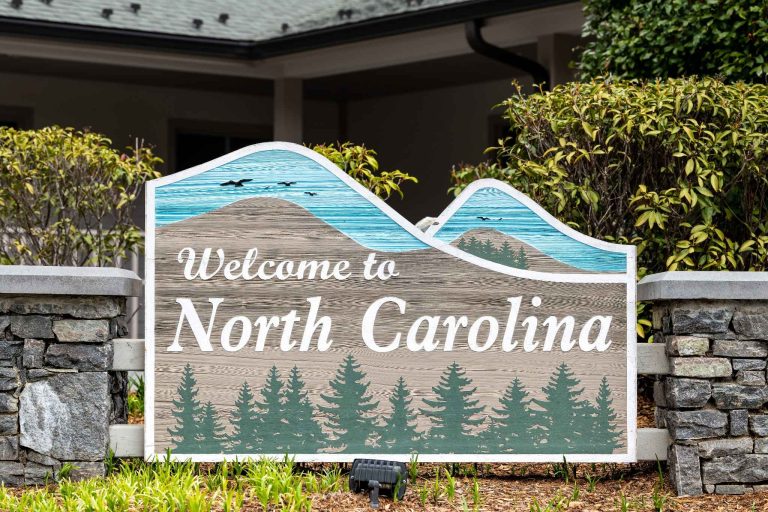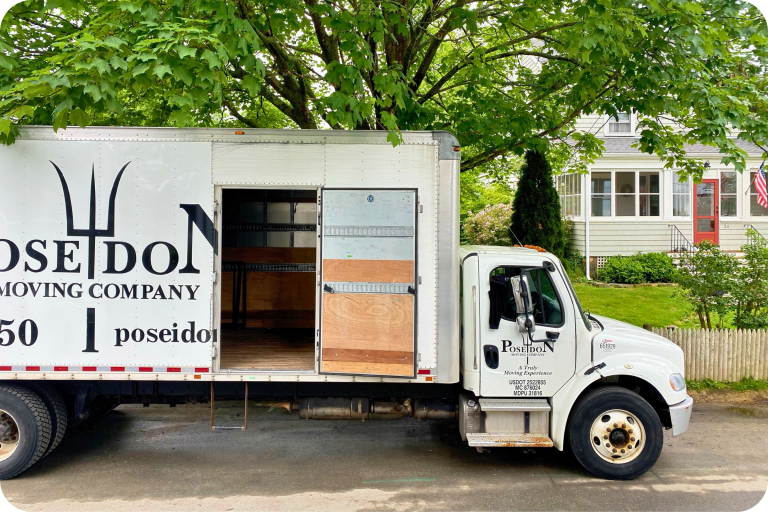Moving to North Carolina: Cost, Cities & What to Expect

Why Move to North Carolina? Key Benefits of Relocating
North Carolina is a state that draws newcomers with its blend of affordability, natural beauty, and economic opportunities. With its picturesque landscapes and thriving cities, it offers a unique balance of urban amenities and outdoor adventures.
One of the state’s biggest draws is its cost of living. Compared to other popular states like New York, California, or Florida, North Carolina provides a more budget-friendly lifestyle while maintaining high-quality amenities. Residents enjoy easy access to breathtaking mountain ranges like the Blue Ridge Mountains and pristine beaches along the Atlantic coast. Whether you’re hiking the trails of Asheville or soaking up the sun in Wilmington, outdoor enthusiasts will find no shortage of activities.
North Carolina is also home to vibrant cultural hubs. Cities like Raleigh and Charlotte boast thriving art scenes, live music, and diverse dining options, making it easy to enjoy a rich cultural life. The state’s economy is flourishing, with industries like technology, healthcare, and finance creating ample job opportunities. Additionally, the presence of renowned universities, including Duke and UNC Chapel Hill, supports innovation and academic excellence.
Cost of Living in North Carolina Compared to Other States
Moving to a new state requires careful consideration of the cost of living. North Carolina’s affordability is one of its most appealing features, offering significant savings compared to national averages.
Average Housing Costs in North Carolina
Housing in North Carolina is far more affordable than in many other states. The median home price in the state is approximately $320,000, which is significantly lower than the national average of $430,000. For those looking to rent, one-bedroom apartments in major cities like Charlotte and Raleigh average around $1,200 to $1,500 per month, while smaller towns offer even lower rates.
| Location | Median Home Price | Average Rent (1-Bedroom) |
|---|---|---|
| Charlotte | $350,000 | $1,500/month |
| Raleigh | $340,000 | $1,400/month |
| Asheville | $370,000 | $1,600/month |
| Boone (Small Town) | $280,000 | $1,200/month |
The variety of housing options is another plus. Whether you prefer an urban loft, a suburban family home, or a quiet countryside property, North Carolina has something to fit every lifestyle and budget.
Utilities and Everyday Expenses to Budget For
Beyond housing, utilities and daily expenses in North Carolina remain manageable. The average monthly utility bill, including electricity, water, and gas, ranges from $150 to $200. Internet services cost around $60 to $80 per month, depending on your provider and plan.
Groceries and dining out are also affordable compared to other states. A meal at a mid-range restaurant averages $15-$20 per person, and grocery costs are below national averages, making it easier to balance a family budget.
Tax Benefits and Financial Advantages
North Carolina’s flat state income tax rate of 4.75% is another financial benefit for residents. Property taxes are also below the national average, and there is no estate tax, which is appealing for retirees and those planning long-term financial stability. These tax benefits, combined with the state’s lower living costs, make it a financially sound choice for individuals and families alike.
Best Places to Live in North Carolina for New Residents
North Carolina offers a wide range of cities, towns, and neighborhoods, each with its unique charm and appeal. Whether you’re a young professional, a growing family, or a retiree, there’s a perfect place for you in the Tar Heel State.
Top Cities for Young Professionals and Job Seekers
For career-driven individuals, cities like Raleigh, Charlotte, and Durham are top choices. Raleigh, part of the Research Triangle, is a hub for tech companies and startups. Charlotte is the state’s largest city and a major financial center, home to the headquarters of Bank of America and other Fortune 500 companies. Durham, known for its strong academic presence, is ideal for those in education and healthcare industries.
Family-Friendly Neighborhoods and Suburbs
Families often gravitate toward suburbs like Cary, Apex, and Chapel Hill. These areas are renowned for their excellent school systems, family-friendly amenities, and safe communities. Parks, playgrounds, and community centers abound, making it easy to find activities for children of all ages.
Affordable Small Towns for Budget-Friendly Living
If you’re seeking a quieter, more affordable lifestyle, small towns like Morganton, Boone, and Hendersonville offer excellent options. These towns provide a slower pace of life while still offering access to essential amenities. Boone, located in the mountains, is a favorite for those who love outdoor activities, while Morganton’s charming downtown area is perfect for those who enjoy a close-knit community.
Best Areas for Retirees in North Carolina
Retirees looking for a relaxed lifestyle will find much to love in Asheville, Pinehurst, and Wilmington. Asheville’s mountain setting, combined with its vibrant arts scene, offers a perfect blend of culture and nature. Pinehurst is a golfer’s paradise, and Wilmington’s coastal charm provides a serene atmosphere for enjoying retirement.
What to Know About North Carolina’s Weather and Climate
North Carolina’s climate varies widely across the state, from the mountains to the coast. Understanding the weather patterns can help you prepare for life in your new home.
How to Prepare for Hurricanes in Coastal Areas
Coastal areas like Wilmington and the Outer Banks are prone to hurricanes during the season, which runs from June to November. Residents should invest in storm-resistant windows, keep emergency supplies on hand, and be familiar with local evacuation routes.
Seasonal Weather Patterns Across the State
North Carolina experiences all four seasons, each bringing its unique charm. Summers can be hot and humid, especially in the Piedmont and coastal regions, while winters are generally mild, with occasional snow in the mountains. Spring and fall are particularly beautiful, with blooming flowers and vibrant foliage creating postcard-worthy landscapes.
Steps to Prepare for Your Move to North Carolina
The cost of your move depends on various factors, including household size and services selected. Here’s what to consider:
- •
Home Size: Larger households require more resources, such as additional movers and truck space, which may increase costs. - •
Additional Services: Options like white glove moving or exclusive truck services can affect pricing. - •
Distance: The 2,100–2,400-mile journey requires careful planning to balance affordability and efficiency.
On average, moving costs from New York to Idaho range between $4,500 and $10,000, depending on your unique needs. Contact Poseidon Moving interstate agents for a transparent, customized quote today.
Follow these steps to set up utilities in your new home:
- 1.
Contact your local electricity, water, and gas providers to activate services before your move-in date. - 2.
Set up internet and cable services with providers in your area. - 3.
Schedule waste collection services with your city or town’s municipality.
Why Choose a Professional Moving Company for Your Relocation
Relocating to North Carolina is an exciting opportunity, and partnering with the right moving company can make all the difference. At Poseidon Moving, we specialize in long-distance moves and are committed to providing exceptional service. Our flat-rate pricing ensures no surprises, and our experienced team will handle your belongings with care.
Ready to make the move? Contact Poseidon Moving today for a free quote and take the first step toward your new life in North Carolina. Let us help you make your relocation stress-free and enjoyable.




